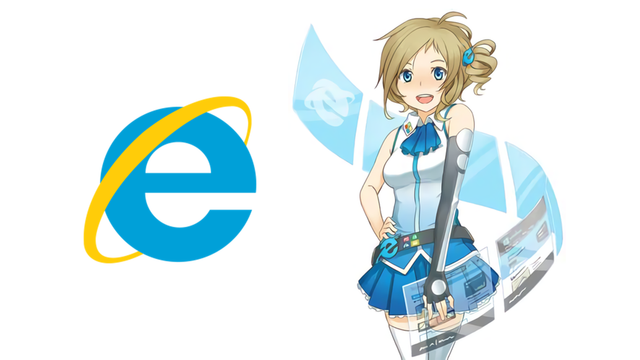Tentang KamiPedoman Media SiberKetentuan & Kebijakan PrivasiPanduan KomunitasPeringkat PenulisCara Menulis di kumparanInformasi Kerja SamaBantuanIklanKarir
2025 © PT Dynamo Media Network
Version 1.95.1
Konten dari Pengguna
Internet Explorer, The Browser That Once Rule Them All
16 Juni 2022 9:26 WIB
·
waktu baca 3 menitTulisan dari Muhammad Ferdiansyah tidak mewakili pandangan dari redaksi kumparan

ADVERTISEMENT
In the 15th of June 2022, Microsoft officially pulled the plug on one of their 'popular' product, Internet Explorer .
ADVERTISEMENT
Internet Explorer known for its instability and bloat. Countless memes circulating around the internet mocking the entire presence of this browser. Many users claimed that they used IE only to download another (and far more superior) browsers like Google Chrome and Firefox.
That reputation couldn't be further from the truth. IE's legacy code is slow and unresponsive. The 'Trident' rendering engine doesn't support the much modern web standards that enables dynamic web pages. Not only that, IE also prone to critical security vulnerabilities.
ADVERTISEMENT
Despite the bad reputation, this browser once held the number one spot in the so-called browser wars, beating competitors like Netscape Navigator and many others. Thanks to the fact that this browser is already pre-installed with Windows, the most popular operating system to this day.
The Controversial Browser
The browser's first debut back in 1995 as part of the company's operating system enhancement pack Microsoft Plus! dubbed the "Internet Jumpstart Kit", and later available for free because it's bundled starting with the Windows 95 operating system.
The development of IE is quite an interesting history of Microsoft. Many legal violations engaged in the development and marketing process. Internet Explorer was using the Mosaic engine made by the National Center for Supercomputing Applications (NCSA). This is the same engine that powers its competitor, Netscape Navigator.
ADVERTISEMENT
Microsoft were using some of Mosaic's source code and licensed it from Spyglass, Inc., so they must pay royalties to them. But since Microsoft technically does not sell IE, the company doesn't have to pay any royalty fee to Spyglass. This resulting in a lawsuit and a US$8 million settlement on January 22, 1997.
The bundling of IE to Windows also resulted a class action lawsuit in the late 90s that started by AOL who owned Netscape at that time. Netscape Navigator was the dominant browser during 1995 and until 1997, but rapidly lost share to IE starting in 1998. AOL accusing Microsoft of unfair competition because of this integration. AOL eventually won this infamous case, but it was too late since IE still reigns supreme after that.
ADVERTISEMENT
Not only that, the US Department of Justice accusing Microsoft behaved like a monopoly and ruled them to be split into two companies, but this didn't happen.
Goodbye Internet Explorer, Hello Microsoft Edge
Starting with Windows 10, Microsoft Edge replaced Internet Explorer. Initially called Project Spartan during its development, Microsoft Edge aims to "modernize" Internet Explorer by removing old legacy code and adding modern browser capability.
But the initial version of Edge never catches the eye of public, due to lack of extension support and compatibility issues that still haunting the browser. In the early days, Edge only gains around 2% market share of the desktop browser space.
Enough is enough, Microsoft decided to move its flagship browser to the Chromium engine made by none other but Google, their main competitor. After this switch, Edge is steadily gaining traction and currently in the 2nd place of the desktop browser market share.
ADVERTISEMENT

